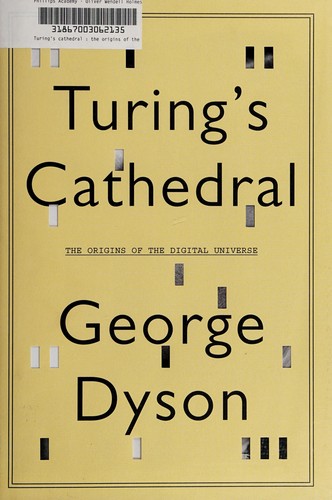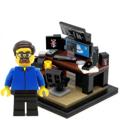Ted Tschopp reviewed Turing's cathedral by George Dyson
Review of "Turing's cathedral" on 'Goodreads'
4 stars
A wonderful book that covers the history of the creation of the computer and the modern age we live in. The title is a bit off as the main character seems to be Von Neumann who acted as an engineer to Turing's hypothetical machine. The book left me wanting more, while others found the details either too many or too obscure, however I have grown up with computers and find many texts covering the topic to be too pedestrian.
I recommend the book to anyone who has a background in computers, math, science, physics, biology, or some of the more statistical leaning social sciences.
A wonderful book that covers the history of the creation of the computer and the modern age we live in. The title is a bit off as the main character seems to be Von Neumann who acted as an engineer to Turing's hypothetical machine. The book left me wanting more, while others found the details either too many or too obscure, however I have grown up with computers and find many texts covering the topic to be too pedestrian.
I recommend the book to anyone who has a background in computers, math, science, physics, biology, or some of the more statistical leaning social sciences.

